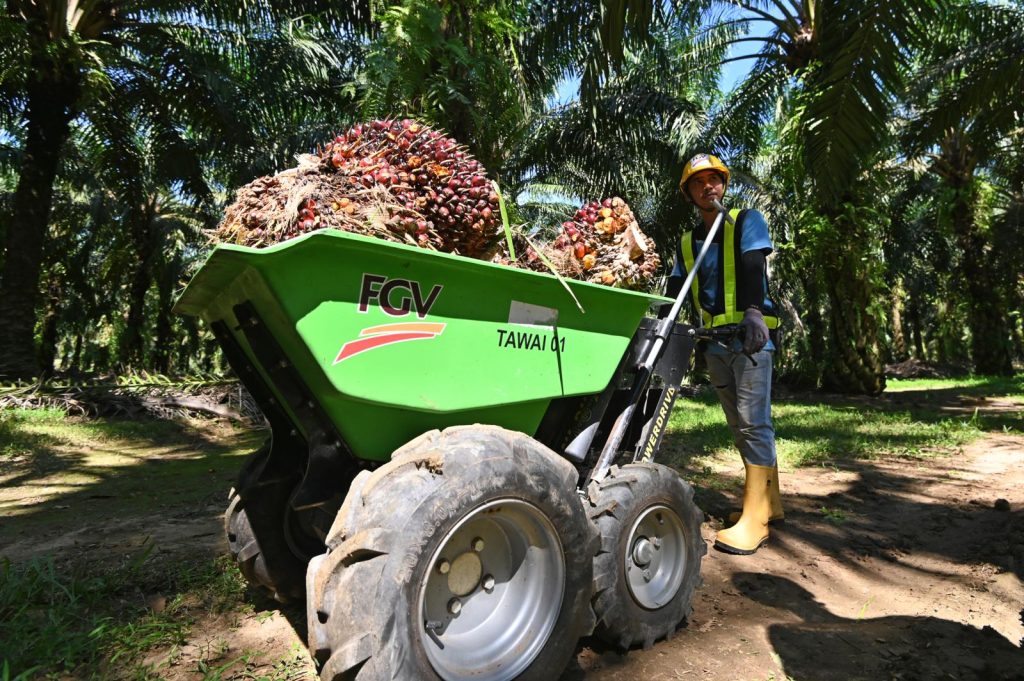
Investors face tough choice amid weak outlook, fair value bid
by RUPINDER SINGH
FGV Holdings Bhd is once again in the spotlight with the Federal Land Development Authority’s (Felda) renewed attempt to privatise the plantation giant.
This time, minority shareholders should seriously consider accepting the RM1.30 per share offer — not only because it reflects fair value under current market and operating conditions, but also because the company’s long-term structural issues and volatile earnings profile offer little reason to hold on.
Felda, which currently owns 86.93% of FGV shares through direct and indirect holdings, has launched an unconditional voluntary takeover offer to acquire the remaining shares it does not already own.
If successful in securing at least 90% of the total share capital, Felda will trigger a compulsory acquisition under the Capital Markets and Services Act 2007 and proceed to delist the company from Bursa Malaysia.
The offer, priced at RM1.30 per share, is the same level Felda offered back in 2020 during its first privatisation attempt.
While that offer ultimately failed to reach the required threshold, several key dynamics have changed since then — making the current bid more likely to succeed and more compelling to minority shareholders.
A Sobering Look Back
FGV was once a high-flying IPO story.
When it listed on Bursa Malaysia in June 2012, it raised RM10.4 billion, with shares priced at RM4.55 apiece.
With a total of 3.65 billion shares issued, the listing valued FGV at a staggering RM16.6 billion, making it the second-largest IPO globally that year after Facebook.
The offering was hailed as a major milestone for Malaysia’s palm oil industry and Felda’s transformation ambitions.
More than a decade later, that promise has largely faded. FGV’s shares last closed at RM1.28 — more than 70% below its IPO price — reflecting chronic structural inefficiencies, volatile earnings, governance setbacks and missed downstream integration targets.
For many long-time investors, the privatisation offer now represents a pragmatic way out of a disappointing investment.
A Repeat Offer, but a Different Outcome?
Felda’s current move echoes its December 2020 attempt, when it triggered a mandatory general offer after acquiring shares from The Retirement Fund Inc (KWAP) and Urusharta Jemaah Sdn Bhd (UJSB).
Despite several extensions to the offer period, the bid ultimately failed to reach the 90% acceptance level required for delisting. However, conditions at the moment are more favourable for Felda.
Notably, in March 2025, Bursa Malaysia rejected FGV’s application for additional time to rectify its low public shareholding, leaving the company in breach of listing requirements and giving Felda a firm rationale to relaunch its takeover effort.
Public shareholding now stands below 13%, limiting trading liquidity.
This raises the likelihood of offer acceptance, particularly as the remaining minority shareholders face a shrinking market with few institutional buyers.
Both Hong Leong Investment Bank (HLIB) and BIMB Securities Sdn Bhd recommend acceptance.
HLIB has revised its target price to RM1.30 from RM1.26, in line with Felda’s offer.
BIMB sees the offer as fair, noting it represents an 8.5% premium over its in-house fair value of RM1.20 and a 10% premium to the one-year volume weighted average price (VWAMP).
Valuation is Reasonable
At RM1.30 per share, the offer translates to a forward price-to-earnings (P/E) ratio of about 13.2 times–15 times for financial year 2025 (FY25)-FY27 and a price-to-book (P/B) multiple of 0.78 times — reasonable when compared to FGV’s five-year historical average P/B of 0.9 times.
Earnings outlook remains muted.
FGV’s core net profit is projected to decline from RM453.8 million in FY24 to RM346.2 million in FY25 and RM316.5 million in FY26.
EBITDA margins are expected to range between 6.3% and 6.6%, reflecting persistent cost pressures and operational headwinds, particularly in the downstream segment.
Dividend yields, while modest, are projected to fall to 1.6% in FY25 and FY26 based on HLIB’s estimates.
BIMB is slightly more optimistic, expecting yields closer to 4.2% based on higher dividend per share assumptions.
Regardless, neither projection makes a strong case for upside from holding out.
Felda’s Strategic Play
Felda’s intention to gain full control of FGV is part of a broader strategy to consolidate its plantation-related assets and unlock operational synergies.
By delisting FGV, Felda gains more flexibility to undertake structural reforms, reduce overlapping functions and implement its Settlers Development Programme (SDP) without the constraints of quarterly reporting and minority shareholder scrutiny.
The SDP aims to modernise Felda’s agricultural model and improve settler incomes through diversification and sustainability.
Full ownership of FGV would allow Felda to better align the company’s upstream and downstream assets with these long-term goals.
It also provides the opportunity to address governance and cost issues that have long hampered FGV’s performance — challenges that are difficult to tackle with fragmented public ownership.
The Risk of Saying No
For investors considering rejecting the offer, the risks are real.
Should Felda succeed in breaching the 90% threshold, dissenting shareholders will likely face a compulsory acquisition.
If the threshold isn’t met, liquidity will deteriorate further and the stock may trade in a tight band with limited institutional interest.
The chance of a meaningful re-rating appears remote, particularly in the absence of strong palm oil price tailwinds or significant internal restructuring both of which are unlikely in the short term.
FGV’s privatisation may not deliver IPO-level returns, but it represents a realistic and fair exit for investors.
The RM1.30 offer reflects current valuations and market sentiment while allowing Felda to execute its vision for agricultural reform and settler empowerment.
From a capital markets standpoint, the delisting is now not only inevitable — it is necessary.
Minority shareholders would be wise to take the offer and move on, closing a long and often difficult chapter in one of Malaysia’s most watched listings.
- This article first appeared in The Malaysian Reserve weekly print edition
The post FGV minority shareholders should agree to RM1.30 appeared first on The Malaysian Reserve.
